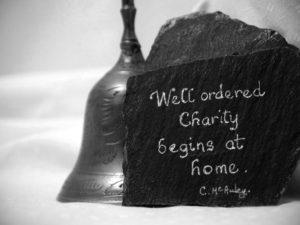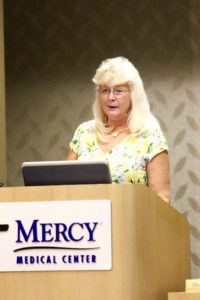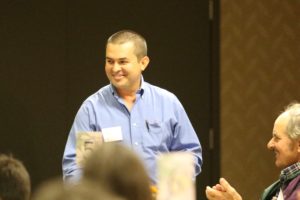The Catherine McAuley Center’s (CMC) Adult Basic Education Program tutored over four hundred active students last year and while we have a committed group of more than 250 volunteer tutors, more than 100 individuals remain on the wait-list to receive tutoring. Conflicts with scheduling, tutor availability and transportation all pose obstacles to a student’s participation in the program. Because of these conflicts, CMC began offering classes at off-site satellite locations. The introduction of these locations allow CMC to reach more people and better meet the needs of students who face some of the challenges listed above.
Currently, CMC has three satellite locations: the Hiawatha Public Library, St. Jude’s Catholic Church and the Seventh Day Adventist Church of Cedar Rapids. The spaces and commitment of the volunteers at these locations are invaluable to the Adult Basic Education Program and CMC. CMC would like to thank those involved and highlight the growth and commitment of these important community partners.
Hiawatha
CMC’s partnership with the Hiawatha public Library began in 2014 out of the need to reach individuals living in Hiawatha experiencing problems with transportation to Cedar Rapids. Courses are split evenly between literacy and ESL, and U.S. citizenship exam preparation and led by CMC’s curriculum specialist Katie Rosenberger. The Hiawatha library director Jeaneal Weeks says, “It is gratifying to know that we are providing a needed service, and that the students feel welcome in the library.”
We are extremely grateful for the things the Hiawatha public Library has been able to achieve and the work they do in collaboration with CMC. As our first satellite location, the Hiawatha public library allowed CMC to lay the groundwork for further endeavors to reach those who may have been difficult to reach before.
Last year, through our partnership with the Hiawatha Public Library:
- 16 volunteers tutored in various subjects.
- We established weekly classes on Mondays and Wednesdays from 11am – 1pm.
- We offered tutoring in ESL, literacy and U.S. Citizenship exam preparation.
- 33 students worked to achieve their education goals.
- Students and tutors studied for a combined 1873 hours!
- We hosted students from 2 countries: Bhutan and Burundi.
St. Jude’s
Seeing the need within their own parish for English tutors, St. Jude’s Catholic Church originally approached CMC with the prospect of creating a satellite location for Adult Basic Education. They had individuals within the parish with both the desire to learn English and the desire to teach it. Our partnership began in the autumn of 2016 and we look forward to its continuation!
Mari Hunt Wassink from CMC leads the classes held at St. Jude’s and expressed thanks and gratitude for the help they’ve provided, “it’s encouraging to witness the progress students make each week toward their goals, including learning English to become a registered nurse, achieve U.S. citizenship, talk with their children’s teachers, attend college and make a friend.”
Last year, through our partnership with St. Jude’s:
- 33 people volunteered their time to tutor.
- 47 adults received tutoring.
- We offered classes in ESL, literacy and U.S. citizenship exam preparation.
- Classes were held on Tuesdays from 9am – 12pm.
- Students and tutors studied for 750 hours!
- We hosted students from 7 different countries: Angola, Burkina Faso, Burundi, the Democratic Republic of Congo, Somalia, Togo and Vietnam.
Seventh-Day Adventist
In January 2017, the Seventh-day Adventist Church (SDA) and the Catherine McAuley Center (CMC) launched a partnership to provide free tutoring services to adults in the community in an alternative location for students and volunteer tutors.
The Catherine McAuley Center is grateful for the welcome that the Seventh-day Adventist Church has extended to each of the students, tutors, and CMC staff. The church has generously shared its facilities to help provide a safe educational space. In addition, many members have given their time and talents to volunteer as tutors. As we continue this collaboration, we look forward to offering another year of hope and opportunity together. Thank you!
Last year, through our Partnership with Seventh-day Adventist Church:
- 14 people volunteered to teach English, literacy and citizenship.
- 21 adult students received free tutoring.
- Classes took place on Thursdays from 4pm – 7pm.
- We offered courses in ESL, literacy and U.S. citizenship exam preparation.
- Students and tutors studied for a combined 352 hours!
- We hosted students from 7 different countries: Burundi, the Democratic Republic of Congo, Haiti, Honduras, Peru, Rwanda and Vietnam.
Tutor with Us
The collaboration between satellite locations and CMC has become a crucial resource for people striving to achieve their educational goals. Together, we continue to serve and empower students to build a better future.
CMC would like to express our gratitude towards those parishioners and community members who volunteered to tutor and instill hope in individuals. CMC is always looking forward to continuing our partnership with satellite locations and being able to help those who want help!
If you are interested in becoming a volunteer tutor, whether at a satellite location or at CMC’s main center, sign up for a tutor orientation at www.cmc-cr/volunteer.

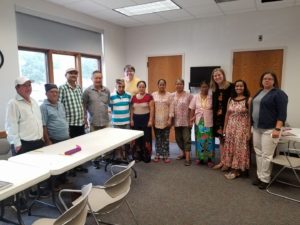

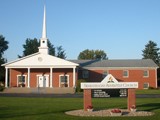
 This growing season, Daniel and Rachel are finding belonging and hope in the Catherine McAuley Center’s (CMC) community garden, where they will work side by side with other students, residents, and refugee newcomers to grow produce for their families and CMC’s food pantry.
This growing season, Daniel and Rachel are finding belonging and hope in the Catherine McAuley Center’s (CMC) community garden, where they will work side by side with other students, residents, and refugee newcomers to grow produce for their families and CMC’s food pantry.
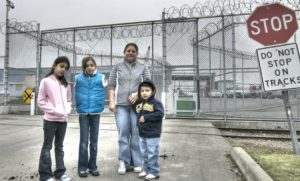
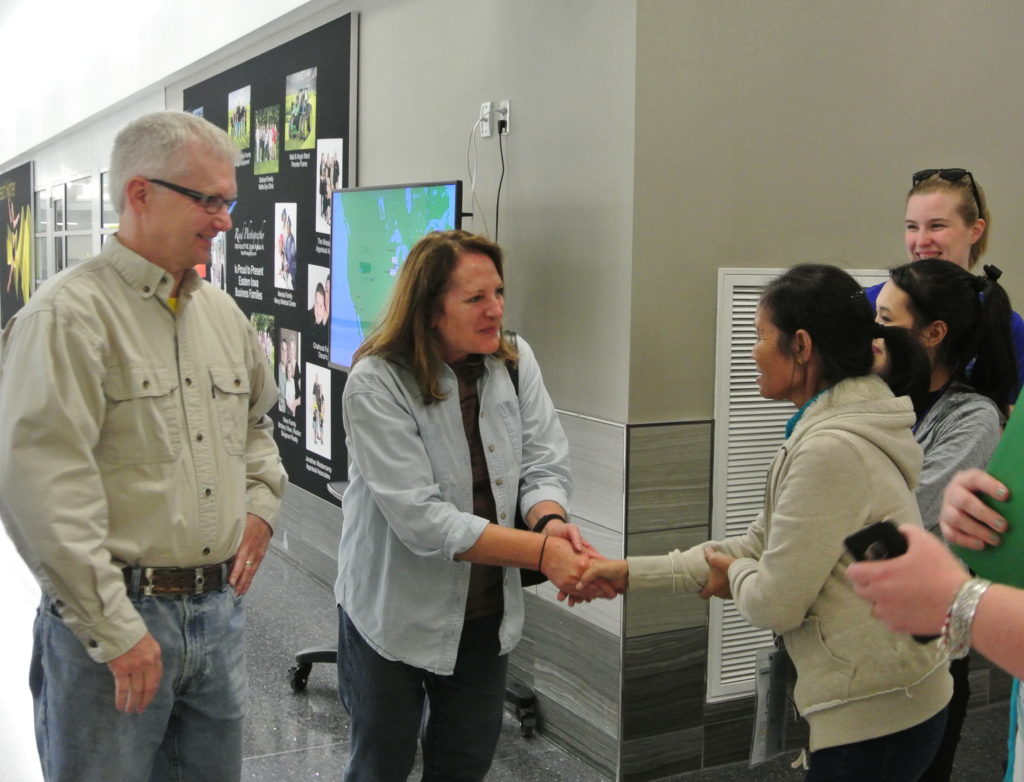
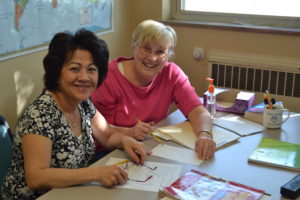 Volunteer
Volunteer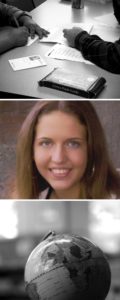 So often here at the Center we get caught up in the schedule and the hectic rush of tutors and students. We sometimes forget to give a heartfelt “Hello, how are you?” or we think we’ll check in next time/next week. This past week we lost a dear member of our extended family of learners and educators.
So often here at the Center we get caught up in the schedule and the hectic rush of tutors and students. We sometimes forget to give a heartfelt “Hello, how are you?” or we think we’ll check in next time/next week. This past week we lost a dear member of our extended family of learners and educators.
 Refugee resettlement is up and running at the Catherine McAuley Center! April brought the arrival of two siblings from Iraq and a young man from the Democratic Republic of the Congo, with a Burmese family resettled the first week of May. RefugeeRISE Americorps members, Clark Cunningham-White and Leya Neema, share an update on exciting program milestones and the program’s greatest needs moving forward below.
Refugee resettlement is up and running at the Catherine McAuley Center! April brought the arrival of two siblings from Iraq and a young man from the Democratic Republic of the Congo, with a Burmese family resettled the first week of May. RefugeeRISE Americorps members, Clark Cunningham-White and Leya Neema, share an update on exciting program milestones and the program’s greatest needs moving forward below.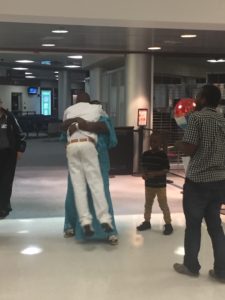
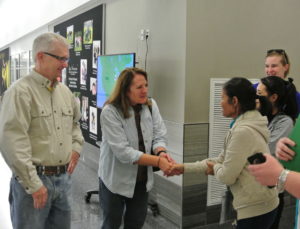

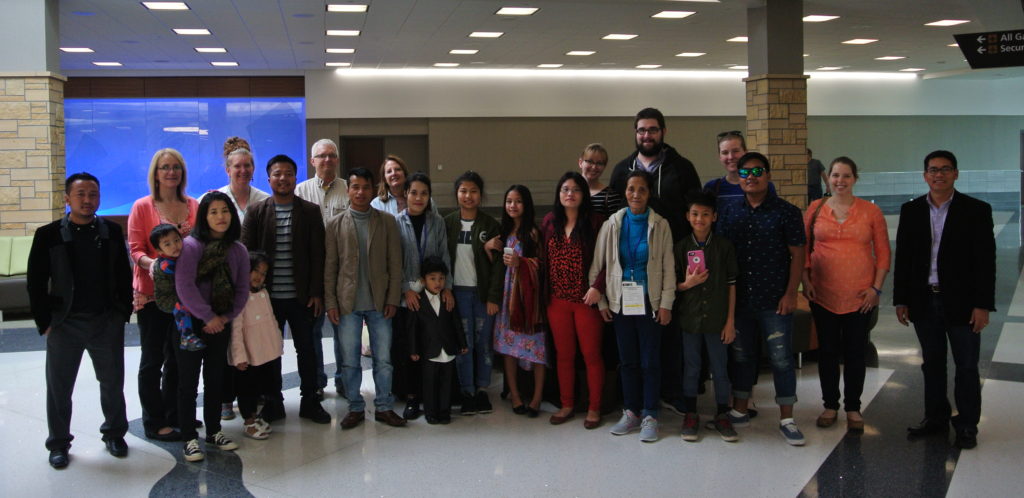

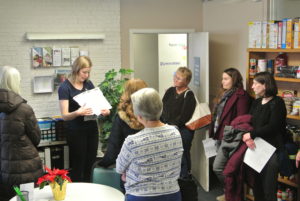 What are some of your favorite moments or memories of working with tutors?
What are some of your favorite moments or memories of working with tutors?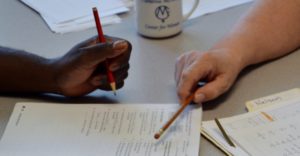 Anne: There’s always Dennis, and the jokes.
Anne: There’s always Dennis, and the jokes.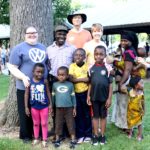 And I just talked to Elias about his [former] Citizenship tutor, Matt. I wrote to Matt and asked if I could give Elias his phone number. He wrote back that Elias, his integrity and his will to learn is the reason that they continue to support the Center. I think all of the tutors are affected as well as the students.
And I just talked to Elias about his [former] Citizenship tutor, Matt. I wrote to Matt and asked if I could give Elias his phone number. He wrote back that Elias, his integrity and his will to learn is the reason that they continue to support the Center. I think all of the tutors are affected as well as the students.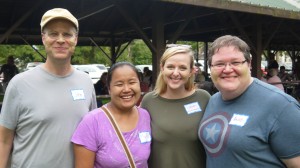
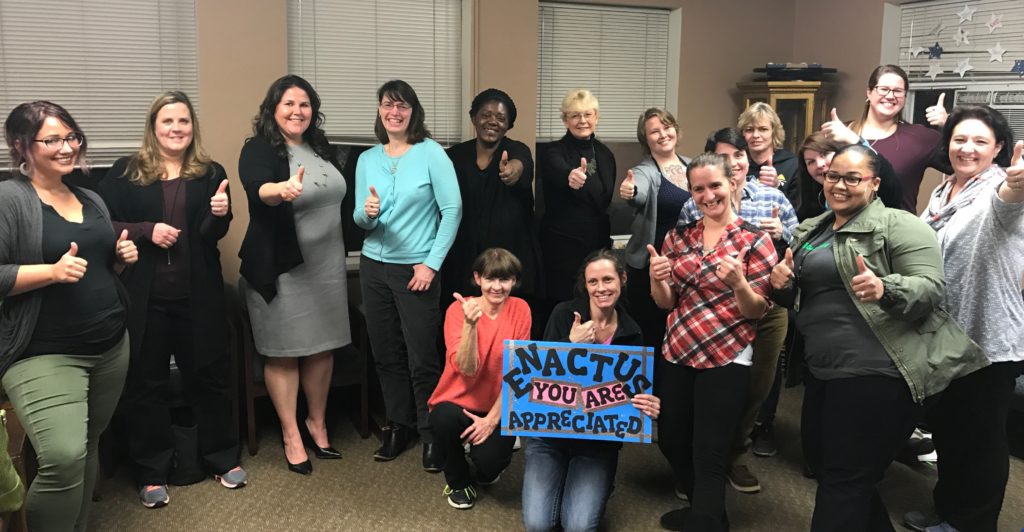 By Jennifer Tibbetts
By Jennifer Tibbetts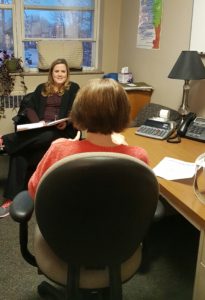 The night of the mock interviews, it turned out that all of the volunteer business leaders were female. Seeing an opportunity for connection, I decided to ask the volunteers to share a little about their journey to where they are today. This started a truly powerful discussion as the female businesswomen shared their successes and struggles, building bridges with residents’ stories. You could see that the residents connected to their stories which were helping residents to regain a sense of hope for their own lives. These volunteers had a larger impact than their original “assignment.”
The night of the mock interviews, it turned out that all of the volunteer business leaders were female. Seeing an opportunity for connection, I decided to ask the volunteers to share a little about their journey to where they are today. This started a truly powerful discussion as the female businesswomen shared their successes and struggles, building bridges with residents’ stories. You could see that the residents connected to their stories which were helping residents to regain a sense of hope for their own lives. These volunteers had a larger impact than their original “assignment.”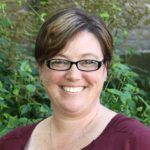 Jennifer is the Transitional Housing Program Manager and has used her 18 years of experience in social services to implement female-responsive programming at CMC. Jennifer is proud to be a part of a mission-driven organization like the Catherine McAuley Center and feels privileged to be in a role in which she can help create a safe and supportive environment that allows women to realize their own potential. In her free time Jennifer finds creative ways to be an advocate for women throughout the state, and organizes community groups and female-led initiatives that allow women to connect and find their voice.
Jennifer is the Transitional Housing Program Manager and has used her 18 years of experience in social services to implement female-responsive programming at CMC. Jennifer is proud to be a part of a mission-driven organization like the Catherine McAuley Center and feels privileged to be in a role in which she can help create a safe and supportive environment that allows women to realize their own potential. In her free time Jennifer finds creative ways to be an advocate for women throughout the state, and organizes community groups and female-led initiatives that allow women to connect and find their voice.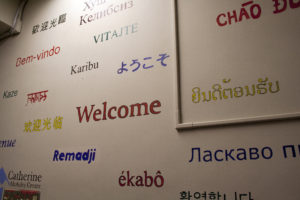 Last week at the Cedar Rapids Public Library the
Last week at the Cedar Rapids Public Library the 